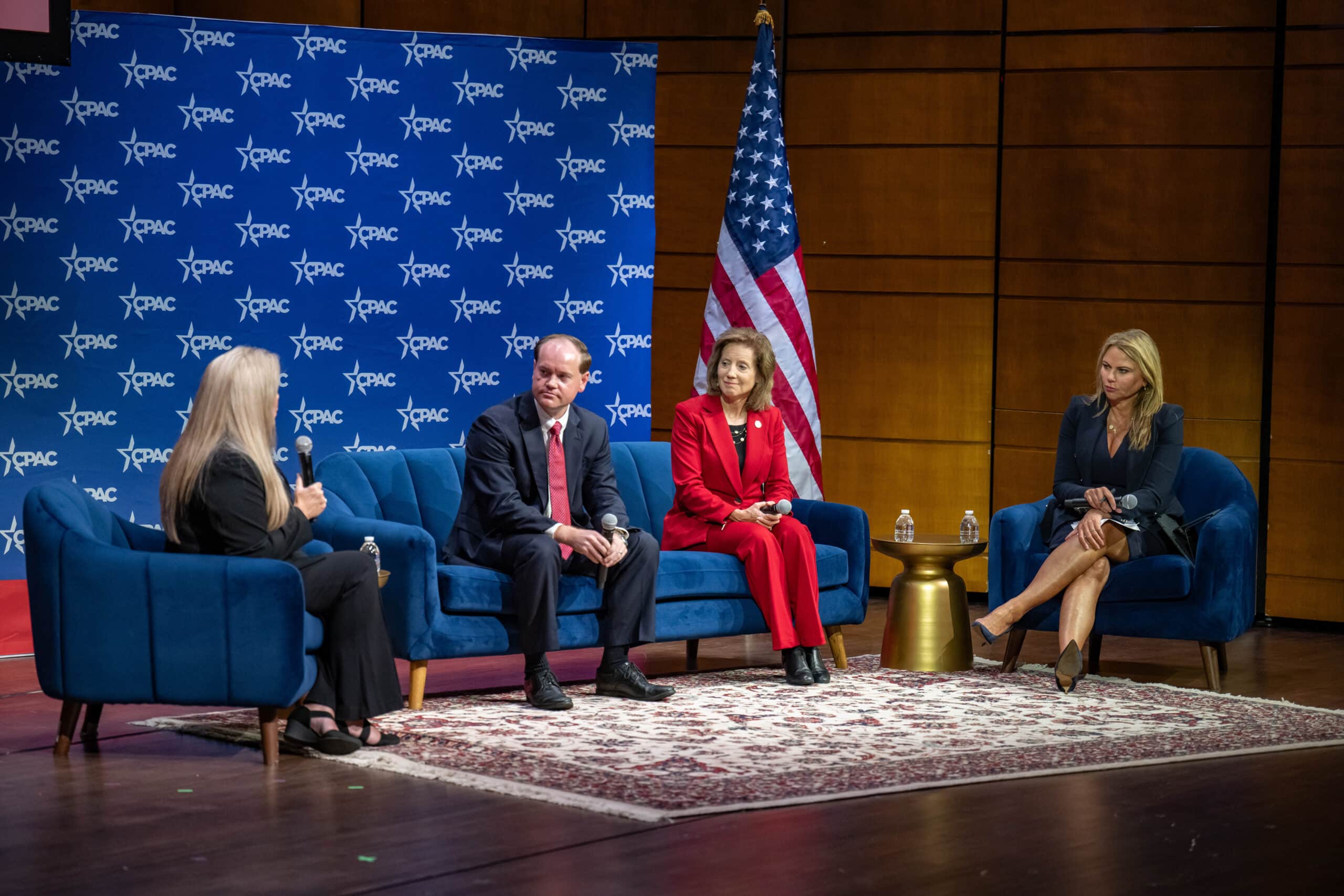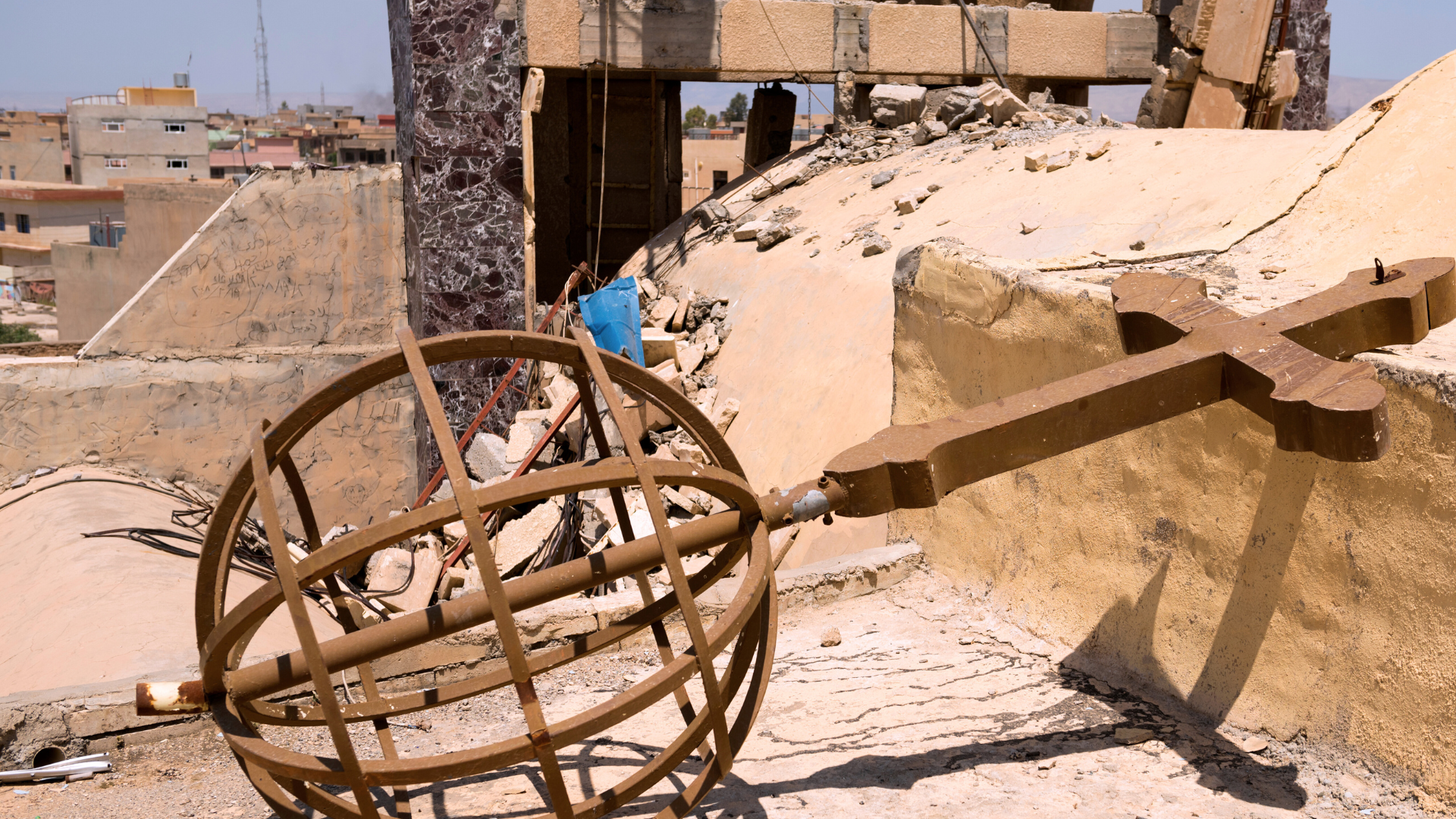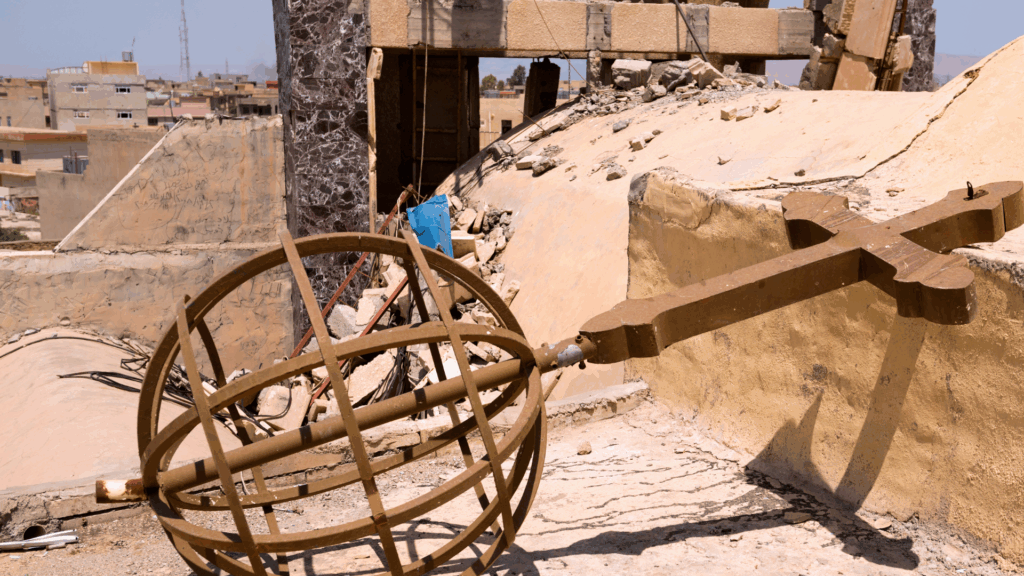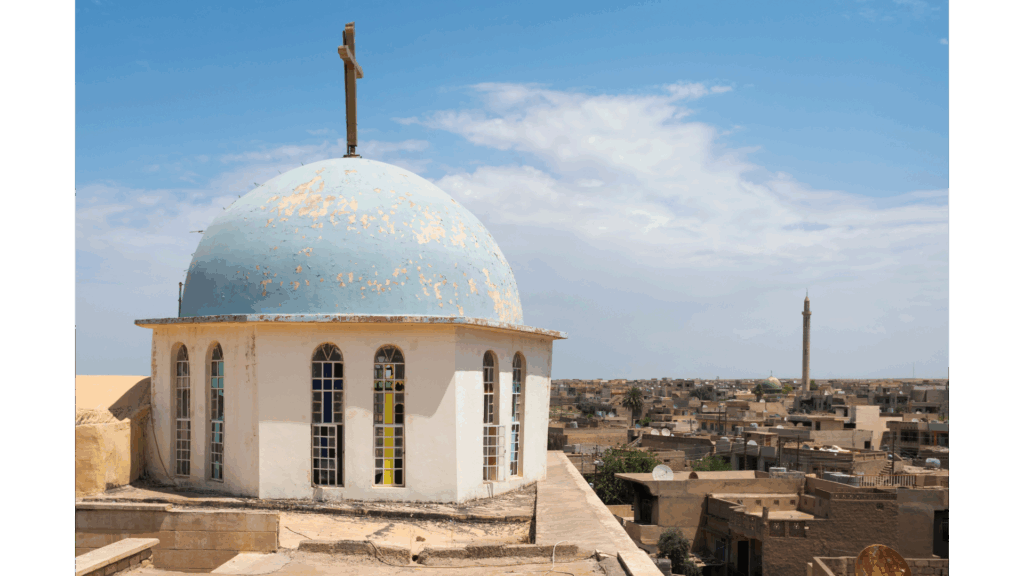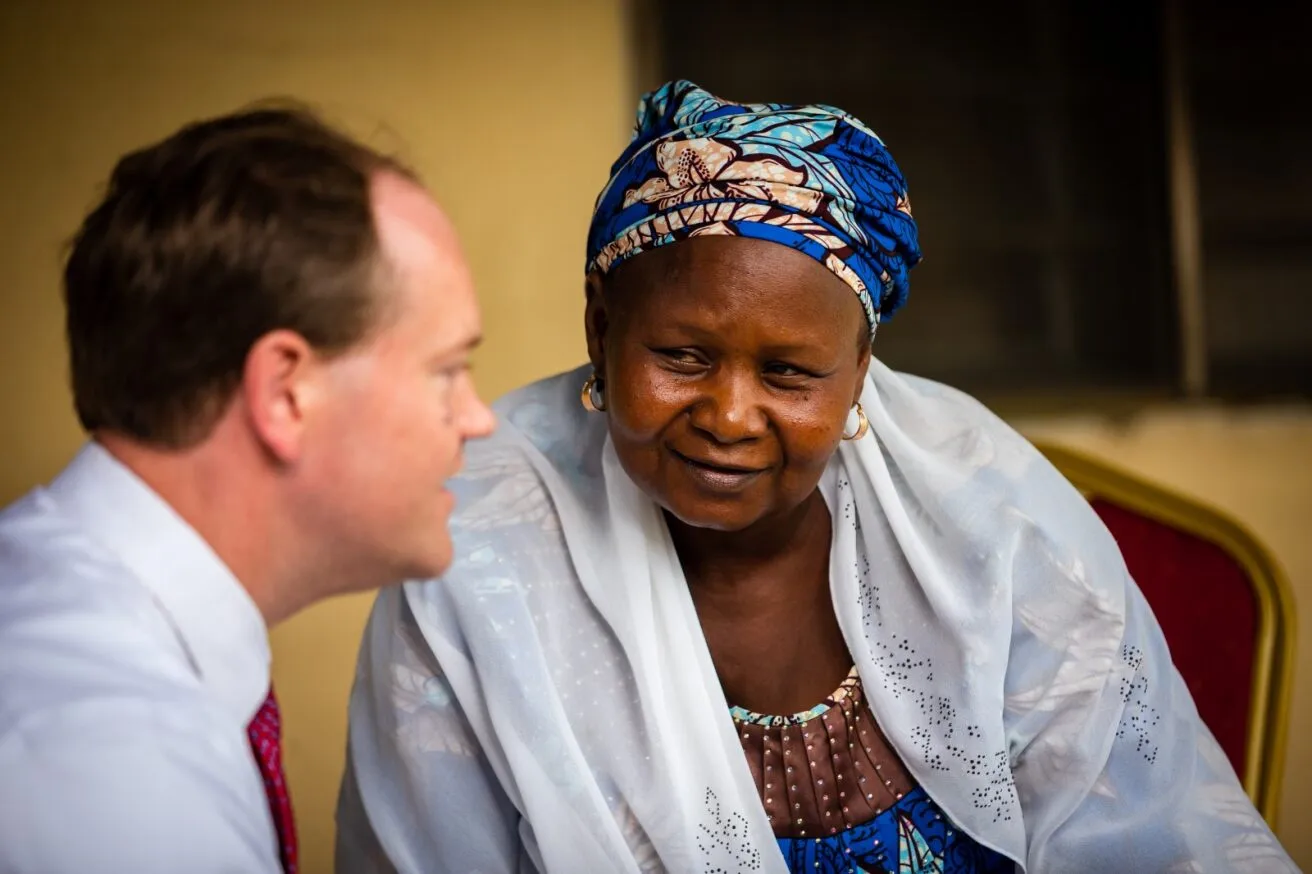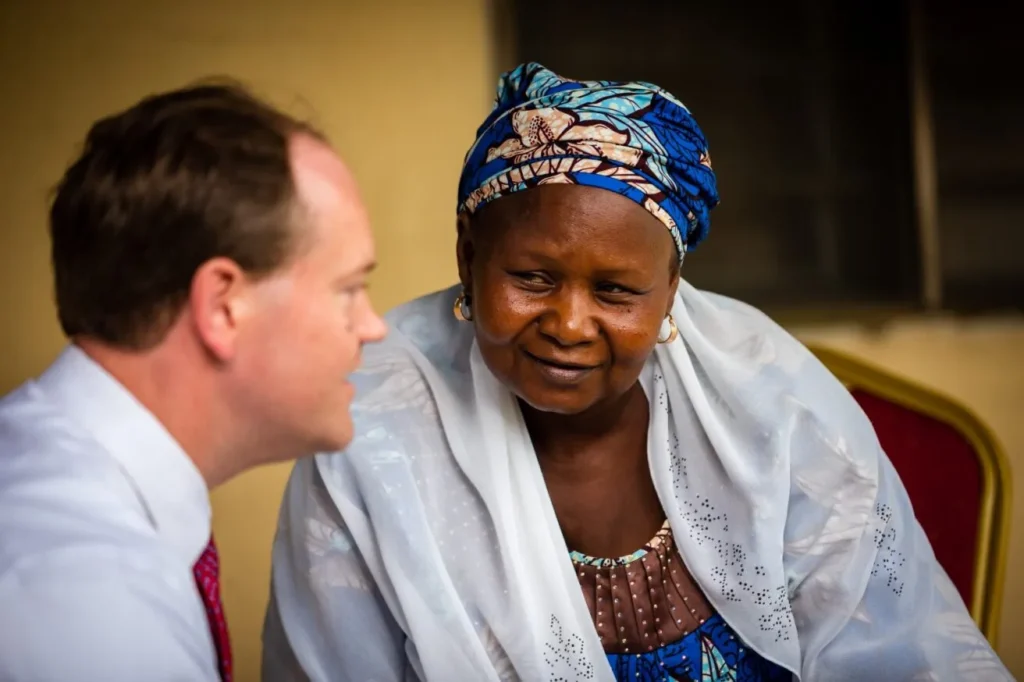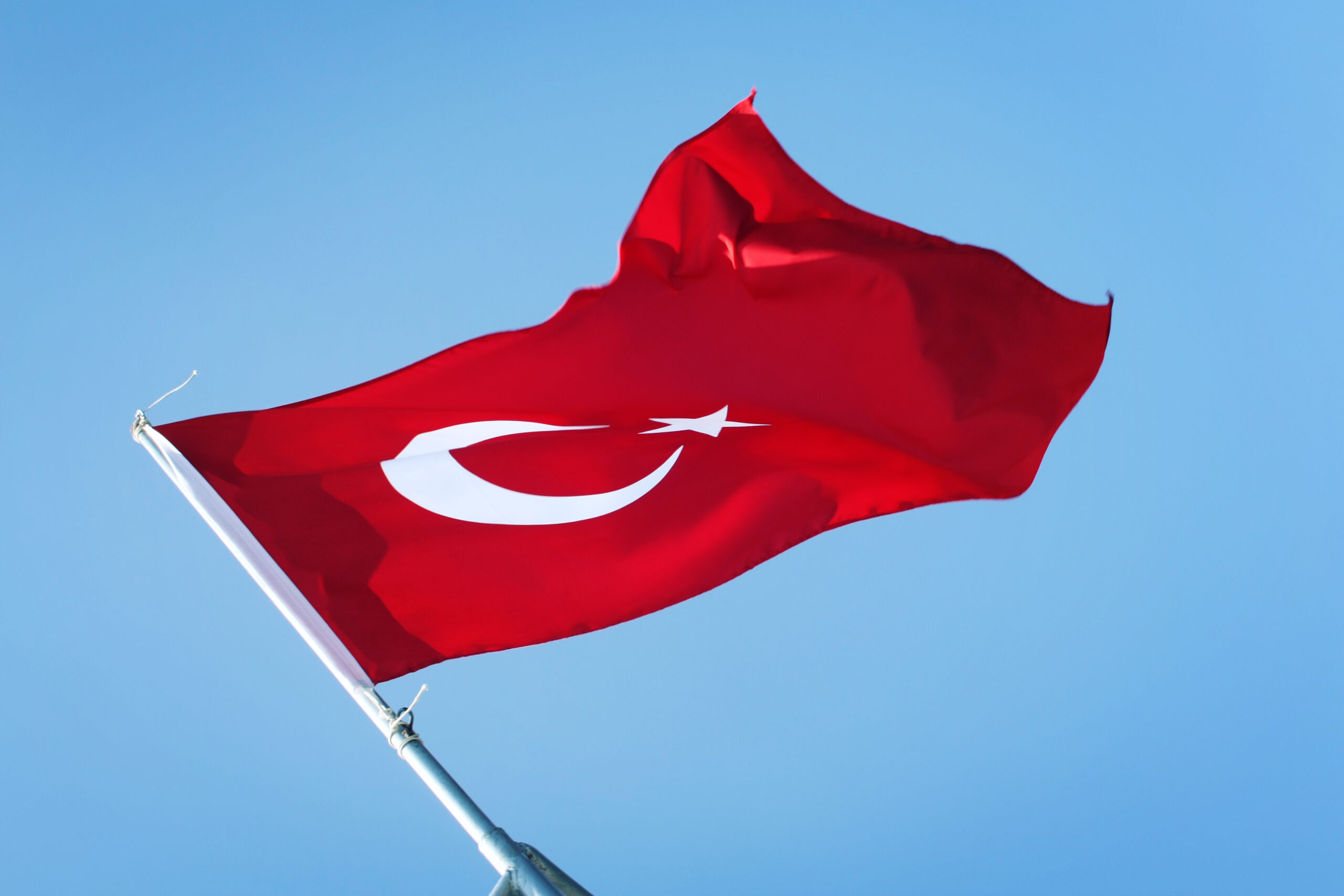- In letter thanking President Trump, coalition of international religious freedom experts and faith leaders outlines key recommendations to respond to crisis facing persecuted Christians in Nigeria.
- ADF International joins the call, urging continued U.S. leadership and global action to defend religious freedom in Nigeria and beyond.
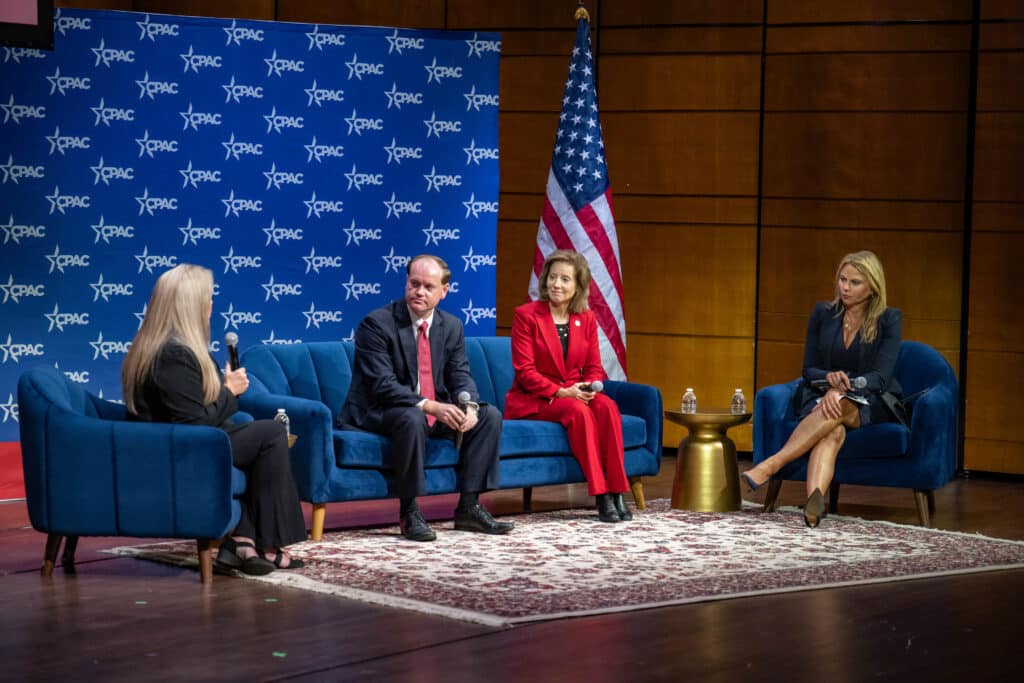
WASHINGTON D.C. (November 13) — A coalition of 48 faith leaders and religious freedom experts has sent a letter to U.S. President Donald Trump, thanking him for his decisive action in designating Nigeria as a Country of Particular Concern (CPC), stating, “You saw the evidence, you listened to the cries of the persecuted, and you acted.”
The letter urges continued United States’ leadership on international religious freedom. In it, signatories emphasize that swift action from the U.S. is indispensable as Christians in Nigeria continue to face relentless violence from terrorist groups. The letter reflects a unified commitment to four recommended key policy goals that Nigeria, following increased pressure from the U.S., should commit to if it is to be removed from the CPC designation: 1) increased security and reliable early warning systems for Christian communities, particularly in the Middle Belt where Fulani militant attacks are the worst; 2) swift prosecution for attackers; 3) facilitating the safe return of internally-displaced persons; and 4) repealing the country’s draconian Sharia blasphemy laws.
“The administration’s decision to redesignate Nigeria as a Country of Particular Concern is a momentous step forward for international religious freedom,” said Sean Nelson, Senior Counsel for ADF International. “Christians and other vulnerable communities in Nigeria have endured unthinkable violence for far too long. While there is still much work ahead, this decisive action renews hope that real protection and accountability are on the horizon. The President’s commitment to Nigeria can serve as a model to protect persecuted Christians worldwide, as Christians are the most persecuted religious group globally.”
“The administration’s decision to redesignate Nigeria as a Country of Particular Concern is a momentous step forward for international religious freedom. While there is still much work ahead, this decisive action renews hope that real protection and accountability are on the horizon. The President’s commitment to Nigeria can serve as a model to protect persecuted Christians worldwide, as Christians are the most persecuted religious group globally."
- Sean Nelson, Senior Counsel for Global Religious Freedom at ADF International
Signatories to the letter include top leaders in the movement to end global Christian persecution, including Alliance Defending Freedom President & CEO Kristen Waggoner, Matt and Mercedes Schlapp of the CPAC Foundation, former Congressman Frank Wolf, former Senior Advisor to the President on International Religious Freedom Sarah Makin, President of Family Research Council and former Chair of the U.S. Commission on International Religious Freedom Tony Perkins, President & CEO of Concerned Women for America Penny Nance, President & CEO of CatholicVote Kelsey Reinhardt, Director of the Hudson Institute’s Center for Religious Freedom Nina Shea, and many others. The letter was developed through the CPAC Christian Persecution Coalition. In addition to highlighting the crisis in Nigeria, the letter urges President Trump to “continue to make the defense of religious freedom internationally a core U.S. foreign policy priority” and to “continue and even elevate” the defense of persecuted Christians worldwide.
“We commend your recognition of the major threat and devastation facing Christians in Nigeria from radical Islamists and a government that has taken little action to protect them, as well as your clear-eyed statements placing all available Presidential actions on the table to ensure that action is taken soon,” the letter reads.
Christian Persecution in Nigeria
Nigeria remains one of the most dangerous places in the world to be a Christian. In 2025 alone, more than 7,000 Christians have been killed for their faith, with an average of 35 murdered every single day. Since Boko Haram launched its insurgency in 2009, estimates indicate that between 50,000 and 100,000 Christians have lost their lives due to religiously motivated violence.
The destruction of churches has become a defining feature of the crisis, with over 19,000 churches attacked or destroyed in recent years. In the central regions of Benue and Plateau States the situation has worsened dramatically, with more than 9,500 people, mostly Christians, killed between May 2023 and May 2025, and around 500,000 individuals newly displaced from their homes due to targeted attacks.
“The numbers we have seen in Nigeria are alarming. With the renewed CPC designation for Nigeria, we are hopeful that this will bring about real change. The letter to the president, which ADF International gladly has joined, acknowledges the horrors that Christians have faced for years and paints a picture of what a path toward protecting them and religious freedom for all can look like,” said Kelsey Zorzi, Director of Advocacy for ADF International.
Advocacy for Nigeria’s Persecuted Christians
ADF International continues to advocate for Christians and other religious minorities who face severe persecution across Nigeria. The organization has supported multiple individuals targeted under blasphemy laws or attacked for their faith.
One such case is that of Rhoda Jatau, a Christian mother imprisoned for 19 months after allegedly sharing a video condemning the brutal lynching of Christian college student Deborah Emmanuel Yakubu. With legal support from ADF International, Jatau was fully acquitted in December 2024, marking an important victory for justice and free expression.
ADF International also backed the successful appeal of *David (name changed for security reasons)*, a Christian man who was wrongfully convicted and suffered torture after helping a convert escape violent threats. A Nigerian High Court ultimately overturned his conviction, acknowledging the injustices he endured.
Today, ADF International continues its support for Yahaya Sharif-Aminu, a Sufi musician imprisoned for over five years after a WhatsApp message deemed blasphemous. Once sentenced to death, Sharif-Aminu is now awaiting his next hearing before the Supreme Court of Nigeria, and his case may be heard and decided in the coming months. Sharif-Aminu’s case has the potential to abolish Nigeria’s harsh blasphemy laws, which embolden mob violence and fuel the climate of hostility facing Christians and other vulnerable groups.
Global Advocacy for Persecuted Christians
The coalition letter underscores that the crisis in Nigeria reflects a broader global trend of growing hostility toward Christians. ADF International supports numerous cases across the world, advocating for the right to freely live out one’s faith.
The letter states, “We see atrocities and grave violations being committed worldwide, from Nicaragua to the Democratic Republic of Congo and Sudan, from Algeria to Syria to China, and in so many other places.” In Nicaragua, ADF International has represented Christian pastors punished for their faith. In Sudan, the organization has advocated for Christians targeted for conversion to the faith. The letter also highlights Algeria, where nearly every Protestant church has been closed by the government. Amid this crackdown, Pastor Youssef Ourahmane faces prosecution before the country’s Supreme Court for leading Christian worship, with a potential prison sentence.
The letter also warns that even in democratic societies, Christians increasingly face pressure and punishment for expressing their beliefs. Cases like Päivi Räsänen in Finland and Adam Smith-Connor in the United Kingdom show how legal and social pressures are mounting against Christians, even in places where religious freedom is traditionally protected.
“The U.S. should stand as a beacon for the fundamental right to religious freedom and a voice for persecuted Christians globally, because if we do not stand, no one else will,” the letter concludes. “We ask that you continue to make the defense of religious freedom internationally a core U.S. foreign policy priority, and that you continue and even elevate your defense of persecuted Christians worldwide.”
You are currently viewing a placeholder content from YouTube. To access the actual content, click the button below. Please note that doing so will share data with third-party providers.
More Information


